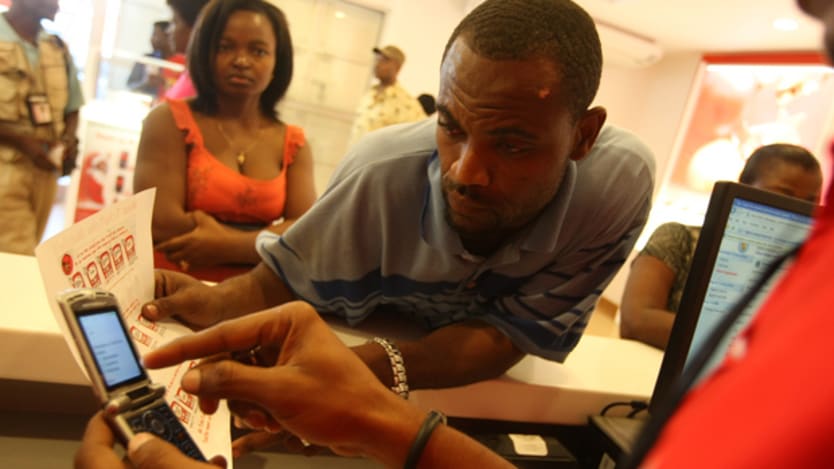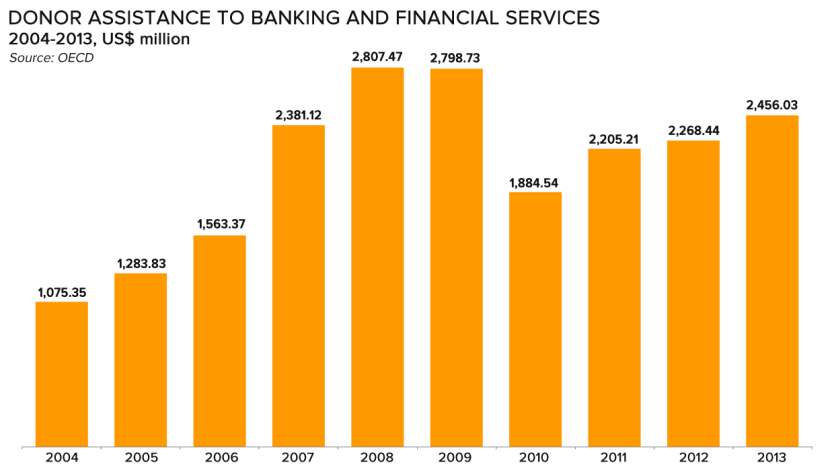Despite improvement in financial inclusion, much more needs to be done

The number of unbanked adults fell to 2 billion, or by 20 percent, between 2011 and 2014, according to the recently released results of the Global Findex, a database that provides in-depth information on financial inclusion around the world.
The increase in the percentage of adults with a bank account — from 51 percent in 2011 to 62 percent in 2014, or 700 million more account holders — was largely driven by greater ownership in the developing world as well as the use of technology. Mobile money accounts in sub-Saharan Africa, where formal financial services can be particularly limited, have helped expand the number of adults with an account in the three-year period.
In an op-ed for Devex, Ann Miles, director of financial inclusion at MasterCard Foundation, noted that lack of access to basic banking services leaves the poor even more vulnerable to financial shocks arising from unexpected illnesses, unstable employment and natural disasters.
According to the Global Findex’s definition, financial inclusion entails owning an account that allows adults to store money as well as send and receive electronic payments. First published in 2011, the Global Findex is collected in partnership with Gallup World Poll and funded by the Bill & Melinda Gates Foundation. Unlike the 2011 edition, which used 60 indicators for 148 economies, the 2014 database uses more than 100 indicators for 143 economies and nuanced data on mobile money and domestic payments.
While the 2014 results are encouraging, more remains to be done. The gender gap in financial inclusion, for example, has not significantly narrowed in the past three years. In 2014, 58 percent of women and 65 percent of men had an account — an improvement from the 47 percent of women and 54 percent of men who had an account in 2011, but still a reflection of a 7 percentage point gap among male and female account holders around the world. When only developing economies are considered, the difference rises to 9 percentage points.
Financial inclusion and access to finance, the Global Findex also stressed, are not the same thing.
“Financial inclusion is focused on use, but lack of use does not always mean lack of access,” according to the report.
In encouraging adults to own and, more importantly, use bank accounts, different sectors have their own roles to play.
For instance, policymakers can lower or remove barriers to financial inclusion by setting up a regulatory framework that is conducive to increasing account ownership and use. The government and the private sector, meanwhile, can pay wages through accounts instead of in cash. Designing financial products that are both affordable and convenient should also be part of the private sector’s efforts to strengthen account ownership.
Donors can contribute to improving financial inclusion as well. A closer look at aid devoted to banking and financial services from 2004 to 2013 shows that assistance disbursed to the sector peaked in 2008, when donors provided $2.8 billion to support financial inclusion.

The quality of the aid channeled toward financial inclusion should likewise be considered. The SmartAid Index, which assesses whether funders are capable of supporting financial inclusion effectively, is one tool that donors could use with support from consultants certified by the World Bank’s Consultative Group to Assist the Poor.
Check out more funding trends analyses online, and subscribe to Money Matters to receive the latest contract award and shortlist announcements, and procurement and fundraising news.
Search for articles
Most Read
- 1
- 2
- 3
- 4
- 5






